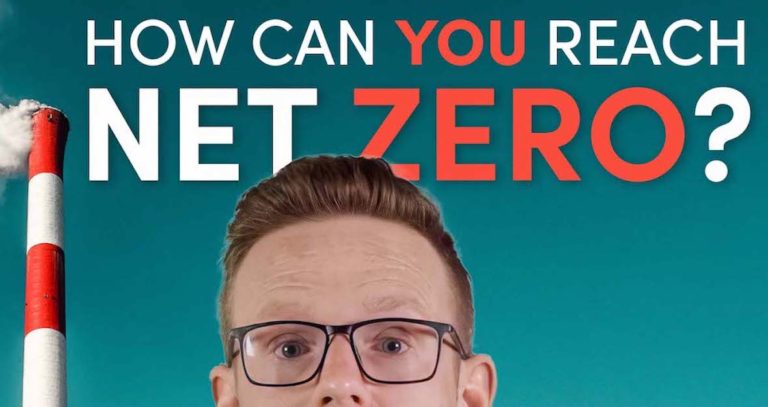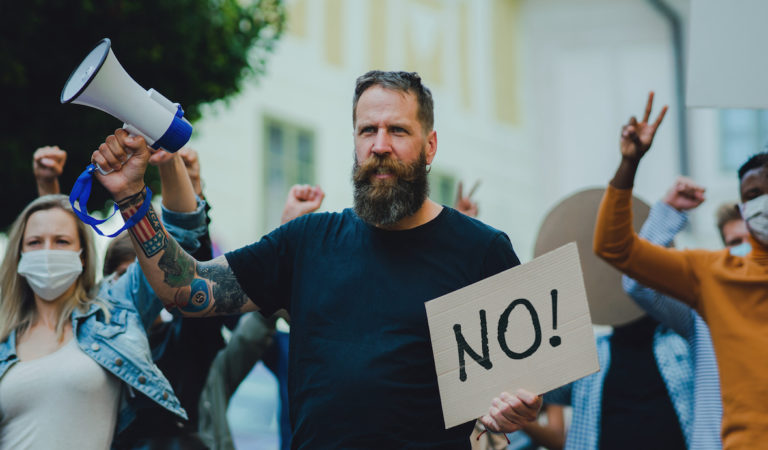
Five ways to avoid food disruption
Supermarkets are central to our everyday lives, but they have also become symbols of our vulnerability in times of disruption.
Inequalities, based on issues such as gender, disability, age, race, income and opportunity, persist across the world — both within and between countries. Beyond the very real impacts that inequalities have on people’s day to day lives, they limit social and economic development, and reduce our ability to effectively address global crises.
Goal 10 of the United Nations Sustainable Development Goals is focused on reducing inequalities, acknowledging that we can’t make a better world if we exclude any part of the population.
Professor Caitlin Byrne, Director of the Griffith Asia Institute, and Associate Professor Andreas Chai, Head of the Department of Accounting, Finance and Economics in the Griffith Business School join Griffith University’s Vice Chancellor and President, Professor Carolyn Evans.
Professor Carolyn Evans, Vice Chancellor and President, Griffith University
Well, thank you both for joining us today. Caitlin, you’re going to start off by giving us just a high level overview of what Sustainable Development Goal number 10 is all about.
Professor Caitlin Byrne, Director, Griffith Asia Institute
Sure. So Sustainable Development Goal 10 is really all about reducing inequalities between and within countries so if we think about it for individuals, for families, communities. This is really about making sure all individuals have access to the social economic and political opportunities they need to really live their life to the fullest potential regardless of their age, their race, sex, ethnicity, religion, origin, economic status.
So that’s important, but it’s also important between nations and SDG 10 is actually also about making sure that all nations have an equal place at the table, that they can be represented in conversations about global policy, that they have access to finance, to address really big issues like climate change, for example, and that they can be equally represented on issues around migration.
So it’s a big SDG. It covers a lot of ground and is pretty complex as well. I think it gives us a big challenge to think about.
Professor Carolyn Evans
So incredibly important address, but quite difficult when you start thinking of all the moving parts. What are some of the things we need to start doing if we’re going to achieve the goals set out in instigating?
Associate Professor Andreas Chai,Head of Department in the Department of Accounting, Finance and Economics, Griffith Business School
Well, as you said, it’s a really complex picture. I think in terms of tackling inequality, we have to really carefully consider what the different dimensions of inequality are into generational or regional inequality. And thinking about some key instruments that can really cut to the core of some of those intractable and complex problems. A key issue that’s come up in the literature is tackling the taxation system. It’s been recognised for the last decade that we need to look beyond income tax as the key hit key taxation mechanism to combat inequality. One of the big issues is that among the very wealthy, most of their forms of income come from capital. So for example, rent. So one big proposal that’s on the table is to talk about land taxes, to try and capture more equally some of those streams of wealth that tend to magnify inequality.
I think that also the other big issue is intergenerational inequality, because some inequality in the system to some degree reflects risk and risk taking. So that to some degree is acceptable. But the inter-generational inequality, that’s a really key issue. So in terms of tackling intergenerational inequality, a lot of emphasis is given to education as a key to improve social mobility and making sure that different regions have access to things like schools, education and decent energy.
Professor Carolyn Evans
And of course, another form of inequality or talk about inequality within a society is really important. But as you pointed out, there’s also inequality between different countries in different societies. And we have Australia sitting as a relatively rich developed country in the Pacific with a lot of our neighbours who are in quite a different position, as are some of our Asian nations. What’s the role of Australia in countries like Australia in achieving a stage 18 on a global level?
Professor Caitlin Byrne
Absolutely critical. And I think recognising that differential between where nations are and the kinds of needs and interests that different nations will have, depending on the context they’re in, it is quite critical. And we’ve seen this play out just recently through the G20 and through the climate change conference at COP26, where I think there is a growing recognition among developed nations that we can’t all be responsible to the same degree for global policy issues that we actually have to think about.
What do developing nations need to improve the opportunities, the systems, the structures in place within their context that will allow them to improve development outcomes, give individuals the kind of access to education, to health services, to infrastructure. So particularly now where we see these really pressing global challenges, where we do have to work together, we have to think about the differential there, how different nations contribute differently to solving the problem.
It doesn’t make any one nation less accountable or less important in that system. But I think Australia certainly does have to play a role, a leadership role, a collective leadership role. And it’s not just about how we engage others, it’s about how we bring others to the table. So making sure Pacific Island nations, other small island developing nations or landlocked developing nations, making sure they have a seat at the table, they have adequate representation that we listen to the issues that they’re faced with.
That’s a really important part of of actually delivering on this SDG and making sure that the policy interventions we actually collectively agree to are right and can have impact
Professor Carolyn Evans
There’s some of these really difficult issues we’re facing. And you mentioned climate change. Obviously, a cop just having wound up recently. The impact can increase existing inequalities that developed nations have often benefited from putting carbon into the atmosphere. And yet the first on the front line in terms of the downside can be developing nations and our Pacific neighbours. A good example of this. So how do we try and make sure that as we face these challenges, we do it in a way that doesn’t just double down on existing inequalities between nations?
Professor Carolyn Evans
Yeah, that’s really important. And I think again, it comes back to listening to those interests and needs of developing nations of making sure we don’t then put an onus on them to actually address inefficiencies and inequalities that actually developed nations have been responsible for. So it is about really addressing some of the structures in the global operating system, if you like, rethinking the way that we think about the response to global challenges like climate change. But it’s also about taking some pretty big steps forward in addressing things like, you know, how we consume coal how we actually think about the emissions that we’re all putting into the atmosphere.
And developed nations have to do more in that space. Clearly, I think in Australia’s case we need to be doing a lot more and address.
Professor Carolyn Evans
One of the other big challenges of the day has been covered say in Australia’s case. What impact has COVID had on equality or inequality?
Associate Professor Andreas Chai
Yeah, look, it’s a really mixed bag in some cohorts and segments of society COVID 19 has been terrible. It’s basically meant that entire cities have been shut down, people have lost their jobs, there’s been some support, but not much. So in some segments and regions we really see things deteriorating quite badly But for other regions and segments, they’re doing quite well. Think about working from home white collar work. And if we look at house prices they have rocketed. So clearly there, it’s sort of almost like a two speed economy where some people are doing really well and some people are really suffering so in terms of the impact of COVID 19 on income inequality, it’s really complex. I think there are two very interesting opportunities to tackle inequality, which COVID 19 has sort of presented.
The first one is working from home because what it’s meant is that there’s been this migration of people from big cities such as Melbourne and Sydney to more regional areas like Toowoomba and the Gold Coast, and that it really is a fundamental sea change in, let’s say, preferences for people to move to smaller towns. All of a sudden with COVID. 19 people are really seriously thinking about the benefits of living in a small town. That has been a huge intractable problem that no amount of Federal Government money could fix and now it’s sort of happening on its own. So that’s really exciting if we can get that right. I think there could be very positive outcomes for some of the smaller regional towns.
The other issue is actually the closure of migration has sort of led to labor shortages in unexpected areas such as agriculture, sort of the fruit pickers, but also engineers. And what that means is that it’s really forcing us to think about how we can up-skill the people, the next generation, to really get into those critical areas in ways that we haven’t had to think about before.
Because we’ve always been able to write out another visa for someone from overseas to come. This is kind of forcing us to think, okay, what do we do if we have to rely on people here to do those critical jobs? And I think that’s a really important issue that we should not ignore post COVID in society because we can use migration to solve some of the problem.
Professor Carolyn Evans
But of course, the cutting off of migration has caused some problems in the region and globally as well.
Professor Caitlin Byrne
Oh, absolutely. It’s and I think we’ve seen, you know, that mixed bag in really different ways. But certainly for Asia and the Pacific, you know, we’ve seen the impact of COVID has meant inequalities have just kind of expanded income disparities between the very rich and the very poor have really widened right across the region. Whereas prior to COVID, we had started to see the rising middle class, more people coming out of poverty. The impact of COVID has been to set us back and you know, small, micro and small businesses have really taken a hit, particularly in South East Asia, but also thinking about our Pacific Island neighbours who rely so much on tourism. You know, they have really felt the impact of this, and it will be a long impact. We haven’t even started to recover. So how Australia also thinks about its neighbours and thinks about the assistance we provide? We have an overseas development assistance budget I think of about $4 billion this year. Now that’s positive and much of that will go towards health care, medical supplies, health care and vaccine distribution. As well as economic recovery. I would say though, that we also have a defense budget of $44.6 billion. So there’s a real disparity in the way we think about some of these issues.
Professor Carolyn Evans
And what’s the role that universities might be able to play in trying to help us achieve this goal?
Professor Caitlin Byrne
Well, here I’m positive. I think universities have a have a really important quite a critical role, actually, first and foremost as educators. And some of that is formal in the classroom. Much of it is informal in the way that we engage with our communities, with industry. I think we’re also facilitators. We can we can bridge conversations that are quite difficult between government, between governments and with industry and with community. We can also advocate and I think, you know, based on the spirit of critical thinking, and inquiry, we’re really well-placed to to lay out the issues, to present an evidence base for the kinds of issues we’re seeing around inequality. And the kinds of solutions and targeted interventions that might work.
Associate Professor Andreas Chai
Yeah, I think, you know, that’s absolutely right. I see universities as the answer to this common issue that’s in the media. There’s always a question, what can government do to solve this problem? But universities are part of the social capital fabric of Australia that really can work, as Caitlin was saying on an institutional level, work with partners like private health networks, work with the NGO sector, bring our knowledge to the table and really forge connections that otherwise would not have been touched because the government’s too busy or people don’t think about it. So one, a really good example is the Queensland Council of Social Services and we’ve worked with them to improve their Cost of Living Report, which kind of sheds light into the regional inequality around Queensland. And that was done with the help of Griffith students and working with them in places like Logan through the Logan. Logan community, we can sort of start to really build those connections that otherwise would have gone missing. And I think the universities should really play a role there just to bring people together, share our knowledge and help empower people to come up with the right solutions to reduce socio economic disadvantage.
Professor Carolyn Evans
It’s great. It’s a different way of looking at a business school too, isn’t it, where you come from, sometimes seen as drivers of inequality, that it’s just about have people get rich but actually you are saying you can use the skills that we teach in business schools to help create a much more equal society.
Associate Professor Andreas Chai
Absolutely, absolutely. I think that that, you know, the the idea that a business school is there to promote more business is just out of date these days. And we see corporations all around Australia getting really serious about their environmentally and social responsible commitments. And the Griffith business school can really help facilitate that. Understand how they can make an impact and improve their social return on investment.
Professor Carolyn Evans
And so that’s great. We’ve got some cause for optimism from business and business schools. Have them finishing with you. What makes you feel optimistic about inequality and how we might be able to tackle that?
Professor Caitlin Byrne
I think the other part of this is what young people are looking for. You know, we play a role in shaping the next generation of leaders for our region and for our local communities. And more and more young people are looking for us to deliver, you know, really thoughtful, sustainable globally oriented kind of education and research that helps them think about the kinds of challenges they will be facing. So that gives me great cause for hope and optimism going forward.
Professor Carolyn Evans
Wonderful. Catlin Byrne, Andreas Chai. Thank you both very much for your time discussing SDG 10.

Professor Carolyn Evans is Vice Chancellor and President of Griffith University.
Carolyn graduated with degrees in Arts and Law from the University of Melbourne and a doctorate from Oxford where she studied as a Rhodes Scholar. Carolyn taught law at Oxford and Melbourne Universities. Prior to commencing at Griffith, Carolyn held the positions of Dean of Law, Deputy Vice Chancellor (Graduate and International) at the University of Melbourne. Carolyn works in the areas of law and religion and human rights and was awarded a Fulbright Senior Scholarship in 2010 to work on comparative religious freedom.
In 2019, Carolyn was elected as a Fellow of the Academy of the Social Sciences in Australia and became a member of the organisation, Chief Executive Women. In 2019, she became Chair of the Innovative Research Universities group.
Follow Professor Evans on Twitter

Professor Caitlin Byrne is Director, Griffith Asia Institute. She is a Fellow of the Australian Institute for International Affairs (AIIA) and Faculty Fellow of the University of Southern California’s Centre for Public Diplomacy (CPD). Caitlin’s research is focused on Australian diplomacy with a special interest in Australia’s engagement in the Asia-Pacific region. Most recent research projects explore the role of leadership, soft power and public diplomacy-including people-to-people connections developed through international education, culture and sport-in developing Australia’s regional influence, relationships and reputation.
Follow Caitlin on Twitter

Associate Professor Andreas Chai is Head of the Department of Accounting, Finance and Economics at the Griffith Business School and an applied microeconomist specialised in the area of household behavior with application to measuring poverty, energy poverty, financial hardship and climate change adaptation.
He has completed projects for APEC, the United Nations, NCCARF, IP Australia and the Queensland government. He has previously worked at the Commonwealth Treasury (Canberra) and the Productivity Commission (Melbourne).

Supermarkets are central to our everyday lives, but they have also become symbols of our vulnerability in times of disruption.

In the race to take action against climate change a lot of terms are thrown around – “net zero”, “carbon neutral”, “carbon negative”. But what do they even mean? We unpack some of these terms and ask the question – what can humans actually do to reverse the negative impact on the environment?

As we head into the third year of the pandemic, debates continue to rage over the ethics of vaccine mandates, restrictions on civil liberties, the limits of government power and the inequitable distribution of vaccines globally. With so much disagreement over questions like these, has the pandemic fundamentally changed the way we think about ethics?